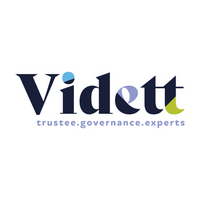How open finance promises to unlock how employees engage with pensions
As pensions are the largest asset most people have other than their homes, it is an area where an open finance approach has the potential to deliver the most benefits. By providing savers with information that’s readily available, clear and easy to understand, they’ll improve their knowledge, better engage with and take ownership of pensions and make more informed decisions about their finances.
For employers, it could help promote the value of a workplace pension to employees. It could also turbo charge financial education in the workplace, supporting employees with one of the major causes of stress and anxiety.
In January, data from the Office for National Statistics showed individuals in the UK held a record £15.2tn of private wealth, with pensions representing the largest proportion at £6.4tn (£5.5tn is in property). Despite the large amounts invested in pensions – including employer pension contributions – industry research highlights just four in 10 people can confidently estimate the value of their pension.
Furthermore, the Association of British Insurers estimates workers have lost or misplaced 1.6 billion pension pots thought to be worth around £19.4 billion. These big figures highlight the clear need for a new approach.
So, when will open pensions arrive?
The good news open finance in pensions is on its way. In 2016, the Financial Conduct Authority recommended an online pensions dashboard to enable millions of workers to view all their pension pots in one place. The original 2019 deadline was missed, but the Department for Work and Pensions published a consultation paper on pensions dashboards that sets out proposed new rules for regulated pension providers and trustees or managers of occupational pension schemes.
The intention is for online dashboards to help drive individual engagement and support more informed decision making about retirement, including pension freedoms, but there are other ways open finance to be used in pensions. For example, defined contribution (DC) master trusts could use open finance to help and support member pension planning. The same is true of other consolidator schemes in the defined benefit world, but the application of open finance would be more powerful to DC pensions as member decision-making has a bigger impact on outcomes.
For employers, how a workplace pension provider uses this new technology to improve engagement and support for employees could become an important consideration when reviewing their performance and suitability (or selecting a new provider).
Will it help employees make better decisions?
The intentions behind open finance are good. An individual’s decisions concerning long-term savings (including pensions) are affected by other personal investment, debt and finance matters and the best outcomes are reached when an individual can assess their circumstances from a holistic viewpoint.
To do that efficiently points to aggregating their financial data online within a secure environment and building a range of communications and tools to support decision making and, where appropriate, nudge people to consider taking action to save more. Many employers want to help employees manage their money better, knowing anxiety around money can affect performance at work. If you’re keen on supporting employees with financial education in the workplace, you may see the real value this offers.
Are there any drawbacks?
Naturally, aggregating financial data through a platform should always be a matter of personal choice. Doing so via the workplace may be uncomfortable for some employees.
There are always potential drawbacks with any technology solution. There is the risk of poor data quality or poor functional design. Employees may need support to engage with the data. It is one thing having information in front of you, but it doesn’t necessarily mean you understand it and know what to do with it.
Open finance has the potential to deliver huge advantages. Ultimately, it could transform forever the way people interact with their savings and retirement planning at a time when it is needed most. To deliver that transformation, communications and engagement will play a major role and that’s where an employer could make a real difference.
Supplied by REBA Associate Member, Vidett
Leading the way in professional trusteeship & governance








